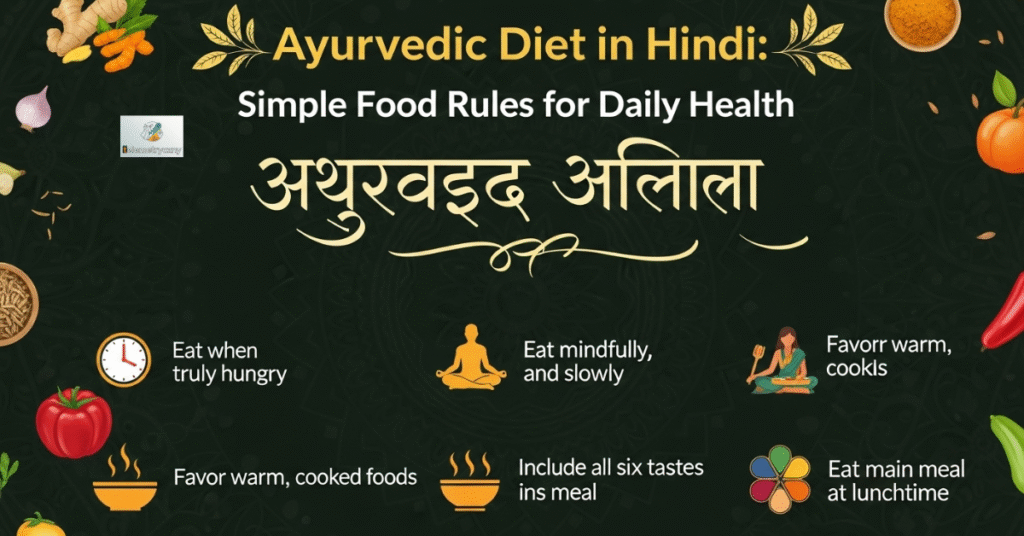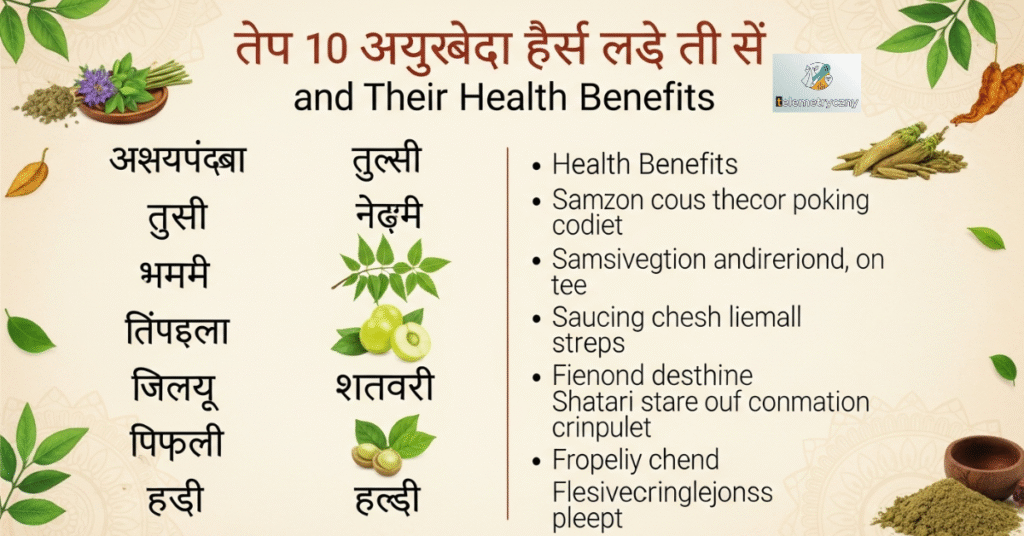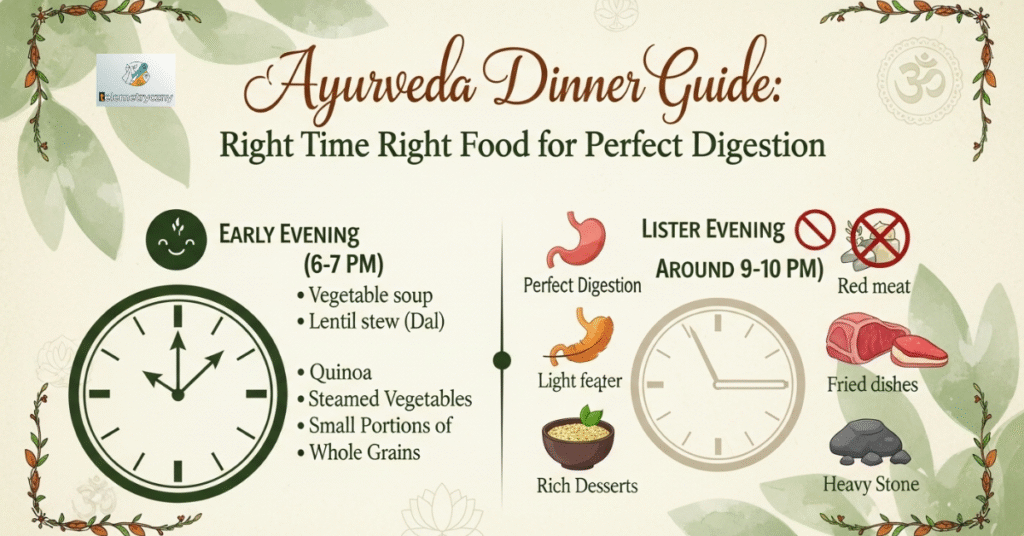Have you ever had the feeling that your body doesn’t seem balanced regardless of what you eat or how hard you try to maintain your health? I’ve been there too too exhausted lethargic and often wondering whether there’s a natural way to feel better without requiring elaborate diets or medications.That’s when I stumbled upon WellHealthOrganic Ayurveda and it completely changed how I think about health and wellness.
The main ideas of WellHealthOrganic Ayurveda will be covered in this blog including easy daily routines foods and herbs that can help your body regain its natural equilibrium. Simple tips and insights can help you feel better boost your energy and become more aware of your body. Feel free to reach out if you need any help.
What Is Ayurveda? Ancient Indian Science of Natural Healing

With over 3,000 years of history Ayurveda is a way of life rather than just medicine. Based on Sanskrit classics such as the Charaka Samhita and Sushruta Samhita it emphasizes digestion dosha balance and overall health. Each person has a distinct constitution or Prakriti that influences their choices for nutrition way of life and treatment.
Key Ayurvedic principles:
- Dosha-Specific Habits: Maintain daily routines that align with your dominant dosha Vata Pitta or Kapha to support overall balance and well to being.
- Conscious Eating: Strengthen your Agni digestive fire by eating organic seasonal meals prepared with mindfulness.
- Herbal Treatments: Use natural herbs like Ashwagandha turmeric and cumin to reduce inflammation and boost immunity.
- Holistic Medicine:Use soothing techniques like massage yoga and meditation to revitalize your body and mind.
By integrating these practices Ayurveda promotes long to term vitality mental clarity and body-mind harmony.
See More: What is Wellhealthorganic health benefits tag
Why WellHealthOrganic.com Promotes Ayurveda for Modern Wellness

In today’s fast-paced world many people struggle with stressdi gestive issues and low immunity. Ayurveda is promoted by WellHealthOrganic.com because it provides useful natural remedies that go in well with contemporary lives. By focusing on dosha to certain meals herbal remedies and mindful practices it assists individuals in achieving balance energy and long to term wellness.
The normal cycles of the body are frequently disturbed by modern life. Processed foods irregular meals and inactivity can exacerbate Pitta imbalances which cause inflammation and irritation or Vata imbalances which cause anxiety and sleeplessness. WellHealthOrganic’s Ayurvedic assistance places a strong emphasis on individualized practices such as using plant to based foods that are in season and herbs that aid with digestion.
Key benefits of adopting Ayurveda with WellHealthOrganic:
- Customized food schedules recipes for the best digestion and energy that are tailored to your individual dosha.
- Holistic well-being recommendations combines yoga meditation with stress-reduction lifestyle advice.
- Natural therapies Herbal oils and spices help detoxify the skin and boost immunity.
- Current flexibility practices that accommodate modern food habits and work schedules.
By following Ayurveda through WellHealthOrganic, you’re not just eating for nourishment you’re cultivating a sustainable lifestyle of wellness clarity and resilience.
See More: WellHealthOrganic Vitamin B12
Understanding Ayurvedic Lifestyle: Balance Your Body, Mind & Soul

Ayurveda is not just about food it’s a complete lifestyle system designed to harmonize your body mind and spirit. Your daily routines sleep patterns exercise and even meal timing play a crucial role in maintaining dosha balance and overall health. By aligning your habits with your constitution you naturally support digestion immunity and mental clarity.
Even small Ayurvedic habits can create big changes. Try starting your morning with warm water or herbal tea to wake up your digestion. A little yoga or meditation helps clear your mind and ease stress. In the evening eat an early light dinner with calming foods to relax your body and get better sleep.
Tips for an Ayurvedic lifestyle:
- Follow Dinacharya
Start and end your day at the same time every day. This simple rhythm keeps your mind calm and your body energized helping you stay balanced and in tune with nature’s flow. - Mindful Eating
Put your phone away while you eat. Take your time chew slowly and enjoy your food. Choose fresh seasonal fruits and vegetables and skip processed items this helps your body truly absorb all the goodness from your meals. - Herbal Support
Try adding turmeric cumin and coriander when you cook. They’re not just for flavor they actually make your digestion smoother and help your body feel lighter from the inside. - Movement & Mindfulness
Take a few minutes each day to walk stretch or breathe deeply. These small moments refresh your mind and keep your body calm and light.
By implementing these habits, you foster internal harmony, prevent chronic diseases, and establish long-term equilibrium. Being proactive with your health rather than reactive to sickness is central to the Ayurvedic lifestyle.
Ayurvedic Diet in Hindi: Simple Food Rules for Daily Health

Making thoughtful dietary choices is the main goal of the Ayurvedic diet. Put simply your diet should promote healthy digestion metabolism and general energy. According to your Vata Pitta or Kapha constitution Ayurveda categorizes meals into four categories heating cooling grounding and light. An Ayurvedic diet’s fundamental guidelines include:
- Eat fresh seasonal and local foods They naturally balance your dosha and provide maximum nutrients.
- Prefer warm cooked meals Especially for dinner as heavy or cold meals can disturb digestion.
- Include a variety of grains legumes and vegetables Quinoa buckwheat lentils and leafy greens support metabolism and immunity.
- Spices and herbs Turmeric cumin coriander and ginger enhance digestion reduce inflammation and boost energy.
- Avoid processed foods Excess sugar caffeine and frozen meals disrupt your internal balance and Agni digestive fire.
For example a Vata-balancing dinner may include a warm lentil soup with steamed vegetables, a drizzle of sesame oil and a side of soft quinoa. A Pitta-balancing meal can include cooling cucumber salads and lightly cooked grains while a Kapha-friendly dinner focuses on light spiced vegetables and minimal heavy grains.
Following these simple rules daily helps maintain digestive health mental clarity and overall well-being while aligning your diet with Ayurvedic principles.
Ayurvedic Lifestyle for Immunity: Boost Natural Defense System

Ayurveda says real health means staying strong enough to avoid sickness not just curing it later. When you eat for your dosha use herbs wisely and take time for yoga or meditation your body naturally becomes calm strong and ready to handle daily stress.In Ayurveda some herbs are treasured for their power to build strong immunity.
Tulsi Ashwagandh Giloy and Turmeric help the body digest food calm inflammation and boost natural defenses. Gentle breathing exercises like Pranayama and a few quiet moments of reflection ease the mind and protect the body from the effects of stress.
Key lifestyle practices for immunity:
- Start the day with warm water and herbal teas Helps detoxify the body and kickstart digestion.
- Eat immune-boosting foods Include seasonal vegetables fresh fruits whole grains and plant-based proteins.
- Incorporate daily movement Yoga or light exercises strengthen the body and support lymphatic circulation.
- Detoxification and rest Abhyanga Ayurvedic massage with warm oils and proper sleep maintain body balance and vitality.
By embracing these habits you create a holistic shield that not only protects against illnesses but also enhances energy mental clarity and overall wellness. Ayurveda doesn’t just treat symptoms it nurtures long to term health and immunity naturally.
See More: Wellhealthorganic Buffalo Milk Tag
Top 10 Ayurveda Herbs List in Hindi and Their Health Benefits

Ayurveda relies heavily on herbs to maintain health balance and vitality. Each herb has unique properties that support digestion immunity and mental clarity. Here’s a list of the top 10 Ayurvedic herbs and their benefits:
- Holy Basil also known as Tulsi helps boost immunity reduces stress and keeps your lungs healthy.
- Ashwagandha gives strength to the body improves focus and helps reduce stress and tiredness.
- Giloy supports strong immunity keeps the liver healthy and works as a natural detox for the body.
- Turmeric has healing power it keeps the skin bright reduces pain and helps with digestion.
- Indian Gooseberry or Amla is full of Vitamin C that improves immunity and keeps skin and hair healthy.
- Ginger helps the stomach work better reduces swelling in the body and increases metabolism.
- Coriander supports digestion cleans the body and helps balance the Pitta dosha naturally.
- Fenugreek or Methi helps control blood sugar supports digestion and improves reproductive health.
- Triphala made from three fruits helps clean the stomach and supports overall good health.
- Licorice also called Mulethi is good for the throat supports the lungs and helps digestion.
Adding Ayurvedic herbs to your everyday routine can make a big difference in your overall well-being. You can use them in teas natural supplements or simply mix them into your meals. Ayurveda teaches that every person’s body is unique so the right herbs depend on your individual dosha. For example people with a Vata type benefit from warm grounding herbs like Ashwagandha and ginger while those with a Pitta type find better balance with cooling options such as coriander.
WellHealthOrganic Ayurvedic Tips for Everyday Wellness

Good health isn’t about doing big things it’s about small everyday choices that keep you feeling good. Ayurveda teaches us to live in tune with our body’s rhythm. At WellHealthOrganic it’s more about balance eating right staying mindful and giving your body the care it deserves. When you follow these simple habits your digestion improves your energy stays steady and your mind feels calm and clear.
Daily Ayurvedic tips for everyday wellness:
- Start your day with warm water and lemon This stimulates digestive fire Agni and helps detoxify the body naturally.
- Follow a dosha-specific diet Eating foods that balance your unique constitution keeps your energy stable and supports metabolism and immunity.
- Practice yoga and meditation Even 15 to 20 minutes a day reduces stress enhances mental clarity and maintains mind-body balance.
- Include mindful eating habits Chew slowly avoid distractions and eat fresh seasonal meals for better nutrient absorption.
- Use herbal teas and spices Tulsi gingr and turmeric can be incorporated in daily meals or drinks to enhance wellness and digestion.
- Prioritize sleep and rest Going to bed early and following a nighttime routine supports rejuvenation and overall vitality.
By following these everyday practices you create a holistic wellness routine that is easy to sustain. Ayurveda teaches that wellness isn’t just about avoiding illness it’s about nurturing your body mind and spirit in harmony. Small changes like adding a daily herbal tea or practicing a short meditation can lead to long to term health benefits and enhanced quality of life.
How to Identify Your Dosha Vata Pitta Kapha and Eat Accordingly

In Ayurveda understanding your dosha is key to maintaining balance energy and overall wellness. Each person has a unique combination of Vata Pitta and Kapha which influences digestion metabolism and mental tendencies. Identifying your dominant dosha allows you to customize your diet and lifestyle for optimal health.
Signs of each dosha:
- Vata (Air + Space):
If you’ve got more of that Vata energy, you’re probably super creative and always full of new ideas. But yeah that same energy can sometimes leave you with dry skin a sensitive tummy or random anxious thoughts. Warm cozy meals really help here things like soups stews root veggies and soft grains make you feel grounded and calm again. - Pitta (Fire + Water):
Pitta folks are natural go-getters sharp confident and always ready to take on a challenge. But that inner fire can sometimes burn too bright leading to irritability or heartburn. Cooling foods are your best friends! Try adding cucumber coconut fresh greens or light grains like quinoa to keep things balanced. - Kapha (Water + Earth):
Kapha types are the calm ones steady loyal and comforting to be around. But when their energy slows down they might feel heavy sleepy or gain weight easily. Light and warm foods with a bit of spice like lentil soups steamed veggies and ginger tea can help spark that inner drive again.
Eating according to your dosha enhances digestion nutrient absorption and energy levels. For example a Vata-dominant person benefits from warm nourishing dinners whereas a Pitta type thrives with cooling and lightly spiced evening meals. Kapha types should avoid heavy oily foods at night to prevent sluggishness.
Tip: Combining mindful eating habits with dosha-specific choices ensures optimal digestion and long-term wellness. Ayurveda emphasizes that food is medicine and a properly balanced diet can prevent disease boost immunity and maintain body-mind harmony.
See More: To Visit Vuzillfotsps
Ayurveda Dinner Guide: Right Time Right Food for Perfect Digestion

In Ayurveda dinner isn’t only about filling your stomach it’s a way to help your body wind down and reset for the next day. When you eat on time and choose light nourishing foods your sleep becomes deeper and you wake up with more energy. It’s such a small habit but it truly makes a big difference for your long-term health.
Key principles for an Ayurvedic dinner:
Eat on time:
Try to finish dinner 2 to 3 hours before bed. It helps your body digest easily and keeps your inner fire (Agni) steady.
Keep it light:
Go for simple cozy meals at night like warm soups khichdi or steamed veggies. Avoid heavy or spicy food before sleep.
Match your food to your dosha:
- Vata: Enjoy warm filling meals like veggie stews with a little ghee or olive oil.
- Pitta: Choose cooling foods such as quinoa salads or cucumber-based dishes.
- Kapha: Stick to light warm gently spiced meals to stay active and fresh.
Use gentle spices:
Add cumin coriander fennel or turmeric to meals to enhance its flavor and promote a healthy digestive system.
Eat mindfully:
Take your time. Notice the taste smell and texture of every bite. Eating with awareness helps you feel full and truly nourished.
These little Ayurvedic practices can significantly improve the quality of your nights. Your body relaxes digestion is lighter and sleep is simpler when you eat healthily and on schedule. According to Ayurveda what you consume at night affects your energy levels the following day. A few simple changes, like lightening supper or adding relaxing spices, can gradually improve health from the inside out.
Seasonal Ayurvedic Diet Plan What to Eat in Each Season

Ayurveda emphasizes seasonal eating to maintain dosha balance digestion and energy levels throughout the year. Each season affects the body differently so adjusting your meals accordingly is key for wellness and vitality.
Season-wise guidelines:
- Spring Vata-Pacifying: Spring can aggravate Kapha so eat light warm and easily digestible foods. Include leafy greens sprouts barley and warming spices like ginger and black pepper. Avoid heavy oily foods.
- Summer Pitta-Pacifying: Summer increases Pitta so prefer cooling hydrating and less spicy foods like cucumbers melons coconut water and quinoa. Limit fried and oily dishes.
- Monsoon Vata-Pitta Balance: During rains digestion weakens. Eat warm light meals like soups kichari and steamed vegetables. Avoid raw salads and chilled drinks.
- Winter Vata-Pacifying: Cold increases Vata so favor hearty warm and grounding foods like root vegetables ghee whole grains and warming spices. Include nourishing soups and stews for energy and immunity.
Eating seasonally aligns your body mind and digestion with nature’s rhythm. Using fresh locally sourced ingredients enhances nutrient absorption immunity and vitality. This approach ensures that your Ayurvedic dinner and meals throughout the day support balance energy and overall wellness.
See More: Wellhealthorganic.com:Health Can Transform Your Routine
Conclusion
WellHealthOrganic Ayurveda Dinner Secrets shows that Ayurveda isn’t just an ancient system it’s a practical guide for modern wellness. By understanding your dosha choosing the right dinner foods and eating seasonally you can enhance digestionmboost immunity and restore balance in your body and mind.
Remember: food is medicine and mindful eating proper timing and natural ingredients are at the heart of Ayurvedic wellness. Incorporate these dinner secrets seasonal adjustments and dosha-specific tips into your daily life to experience long-term vitality energy and holistic health.
With these simple science-backed practices from WellHealthOrganic, anyone can enjoy the benefits of Ayurveda from better sleep mental clarity to improved digestion. Start small adjust to your constitution and let Ayurvedic principles guide your path to optimal health.
FAQ
When should I eat an Ayurvedic dinner?
2 to 3 hours before bed for better digestion and sleep.
What foods are best for dinner?
Light warm easily digestible meals like soups steamed veggies and kichari.
How do I choose foods for my dosha?
- Vata: Warm grounding foods
- Pitta: Cooling mild meals
- Kapha: Light warm dishes
Why is seasonal eating important?
Keeps doshas balanced boosts immunity and supports energy.
Can Ayurvedic dinners improve long-term wellness?
Yes mindful dosha-specific meals enhance digestion immunity and holistic health.
Hi,
I’m Tehreem, a content writer specializing in SEO-optimized articles that rank and engage. Whether it’s AI-assisted or fully human-written content, I deliver clear, creative, and results-driven writing.

